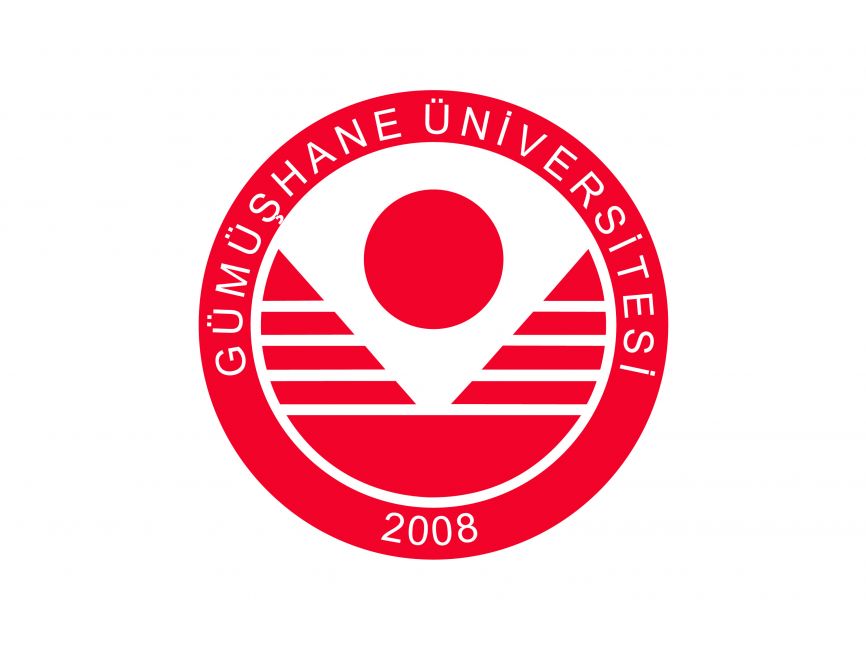Software Engineering
Overview
<!-- wp:paragraph --> <p><strong>Program Description</strong><br><strong>Software Engineering Program at Gümüşhane University: Designing the Future of Technology</strong></p> <!-- /wp:paragraph --> <!-- wp:paragraph --> <p>The Software Engineering program at Gümüşhane University is designed to equip students with the comprehensive technical knowledge and practical skills required to design, develop, and maintain complex software systems. This program combines a solid foundation in computer science with advanced software engineering principles, preparing students for a career in one of the most in-demand fields in technology. Students will learn to apply engineering methods and tools to software development, focusing on system design, programming, software testing, quality assurance, and project management. With a strong emphasis on real-world application and industry collaboration, this program ensures that graduates are well-prepared to take on key roles in the rapidly evolving field of software engineering.</p> <!-- /wp:paragraph --> <!-- wp:paragraph --> <p><strong>Program Mission and Vision</strong><br>The mission of the Software Engineering program at Gümüşhane University is to provide students with the skills, knowledge, and problem-solving abilities required to develop high-quality, reliable, and scalable software systems. The program emphasizes best practices in software development, teamwork, and communication, with a focus on both the technical and managerial aspects of software engineering. The vision is to produce software engineers who are capable of driving technological innovation, designing effective software solutions, and contributing to the development of cutting-edge software technologies.</p> <!-- /wp:paragraph --> <!-- wp:paragraph --> <p><strong>Curriculum Structure</strong><br>The Software Engineering curriculum is designed to provide a balance between theoretical computer science and practical engineering applications. The program covers essential topics in software development, system architecture, design patterns, algorithms, and software management. Key areas of the curriculum include:</p> <!-- /wp:paragraph --> <!-- wp:paragraph --> <p><strong>Core Courses in Software Engineering</strong></p> <!-- /wp:paragraph --> <!-- wp:paragraph --> <p><strong>Introduction to Software Engineering</strong>: This foundational course introduces students to the software engineering discipline, including the software development life cycle, methodologies, and best practices. Topics include requirements analysis, design, implementation, testing, and maintenance of software systems.</p> <!-- /wp:paragraph --> <!-- wp:paragraph --> <p><strong>Object-Oriented Programming (OOP)</strong>: This course focuses on the principles of object-oriented programming, including encapsulation, inheritance, polymorphism, and abstraction. Students will apply these concepts to develop modular and maintainable software solutions.</p> <!-- /wp:paragraph --> <!-- wp:paragraph --> <p><strong>Data Structures and Algorithms</strong>: Students will learn to design and analyze algorithms and data structures. The course covers sorting, searching, dynamic programming, and graph algorithms, with a focus on their application in real-world software systems.</p> <!-- /wp:paragraph --> <!-- wp:paragraph --> <p><strong>Software Architecture and Design Patterns</strong>: This course explores the design of software systems and architectural patterns. Students will learn how to design scalable, maintainable, and efficient systems using well-established design patterns and principles.</p> <!-- /wp:paragraph --> <!-- wp:paragraph --> <p><strong>Database Systems</strong>: Students will learn how to design and manage relational databases, including database modeling, SQL, and data management techniques. The course covers database design and implementation, including normalization, indexing, and transaction management.</p> <!-- /wp:paragraph --> <!-- wp:paragraph --> <p><strong>Software Testing and Quality Assurance</strong>: This course focuses on the methodologies and tools used for testing software to ensure its functionality, reliability, and security. Students will learn about unit testing, integration testing, system testing, and automated testing techniques.</p> <!-- /wp:paragraph --> <!-- wp:paragraph --> <p><strong>Web Application Development</strong>: This course covers the development of web-based applications using modern technologies such as HTML, CSS, JavaScript, and server-side programming languages like PHP and Python. Students will learn how to build dynamic, interactive, and secure web applications.</p> <!-- /wp:paragraph --> <!-- wp:paragraph --> <p><strong>Mobile Application Development</strong>: This course introduces students to mobile app development for platforms like Android and iOS. Students will learn how to design and develop mobile applications, focusing on user interfaces, performance optimization, and platform-specific considerations.</p> <!-- /wp:paragraph --> <!-- wp:paragraph --> <p><strong>Software Project Management</strong>: This course provides students with the skills needed to manage software development projects. Topics include project planning, risk management, team coordination, and quality control. Students will learn about Agile, Scrum, and other project management methodologies.</p> <!-- /wp:paragraph --> <!-- wp:paragraph --> <p><strong>Human-Computer Interaction (HCI)</strong>: Students will study the design and evaluation of user interfaces and user experiences. The course focuses on how to create intuitive, effective, and accessible software that meets the needs of users.</p> <!-- /wp:paragraph --> <!-- wp:paragraph --> <p><strong>Cloud Computing and Distributed Systems</strong>: This course covers cloud platforms, cloud architecture, and distributed computing. Students will learn how to design and deploy applications on cloud environments and manage distributed systems for scalability and reliability.</p> <!-- /wp:paragraph --> <!-- wp:paragraph --> <p><strong>Cybersecurity in Software Engineering</strong>: Students will gain an understanding of the principles of software security, including encryption, authentication, and secure coding practices. The course covers how to safeguard software from cyber threats and vulnerabilities.</p> <!-- /wp:paragraph --> <!-- wp:paragraph --> <p><strong>Advanced Software Engineering Topics</strong>: This course explores emerging topics in software engineering, such as artificial intelligence, machine learning, and big data. Students will work on advanced projects and apply cutting-edge technologies to software development.</p> <!-- /wp:paragraph --> <!-- wp:paragraph --> <p><strong>Capstone Project or Internship</strong>: The program culminates in a capstone project or internship, where students work on real-world software development projects. This experience allows students to apply their knowledge in practical settings, gaining valuable industry exposure and hands-on experience.</p> <!-- /wp:paragraph --> <!-- wp:paragraph --> <p><strong>State-of-the-Art Facilities and Labs</strong><br>Gümüşhane University offers state-of-the-art labs and facilities equipped with the latest software development tools, technologies, and computing resources. The labs provide students with a real-world environment to apply their skills, collaborate on projects, and gain hands-on experience with industry-standard tools.</p> <!-- /wp:paragraph --> <!-- wp:paragraph --> <p><strong>Emphasis on Practical Experience and Industry Collaboration</strong><br>The Software Engineering program places a strong emphasis on practical learning. Students participate in internships and collaborate with industry professionals on real-world software development projects. These experiences give students the opportunity to develop their skills in a professional setting, build a network in the tech industry, and gain valuable insights into the demands of the job market.</p> <!-- /wp:paragraph --> <!-- wp:paragraph --> <p><strong>Career Opportunities</strong><br>Graduates of the Software Engineering program are prepared for a wide range of careers in software development, system design, and IT management. Career opportunities include roles such as software engineer, systems architect, application developer, quality assurance engineer, software project manager, and technical consultant. Graduates may also choose to pursue advanced studies in computer science or specialize in areas such as artificial intelligence, machine learning, or cybersecurity.</p> <!-- /wp:paragraph --> <!-- wp:paragraph --> <p><strong>Shaping the Future of Technology</strong><br>The Software Engineering program at Gümüşhane University prepares students to design, develop, and manage innovative software solutions that will shape the future of technology. By combining strong technical knowledge with practical, hands-on experience, the program ensures that graduates are ready to contribute to the fast-evolving world of software development and engineering.</p> <!-- /wp:paragraph -->
Program Description
The Software Engineering program at Gumushane University offers a comprehensive curriculum designed to prepare students for successful careers in this dynamic field. The program combines theoretical knowledge with practical skills, ensuring graduates are ready for the challenges of the industry.
The program is taught by experienced faculty members who are leaders in their respective fields, providing students with insights into current industry practices and future trends.
Curriculum Highlights
- Advanced Research Methods: Learn cutting-edge research techniques and methodologies.
- Industry Analysis: Explore current industry trends and develop analytical skills.
- Leadership and Management: Develop essential leadership skills for managing teams and projects.
- Innovation and Entrepreneurship: Cultivate creative thinking and entrepreneurial mindset.
- Digital Transformation: Understand how technology is reshaping industries and businesses.
- Sustainable Development: Explore environmentally sustainable practices and their implementation.
- Global Markets: Study international market dynamics and global business operations.
- Technology Integration: Learn to leverage technology for improved business outcomes.
Requirements:
- Bachelor's degree (for Master's programs) or equivalent qualifications.
- Proven English language proficiency (IELTS 6.5+ or equivalent).
- Complete transcripts from previous education.
- A compelling letter of motivation explaining your interest in the program.
- Two letters of recommendation from academic or professional references.
- Valid passport with appropriate visa status or eligibility.
Benefits:
- World-class faculty with extensive industry experience.
- Modern campus facilities and cutting-edge learning environments.
- Strong industry partnerships providing networking opportunities.
- Internship opportunities with leading companies in the field.
- Comprehensive career services including job placement assistance.
- Access to a global alumni network for lifelong professional connections.
Begin your educational journey today.
Apply now and take the first step towards your future.






